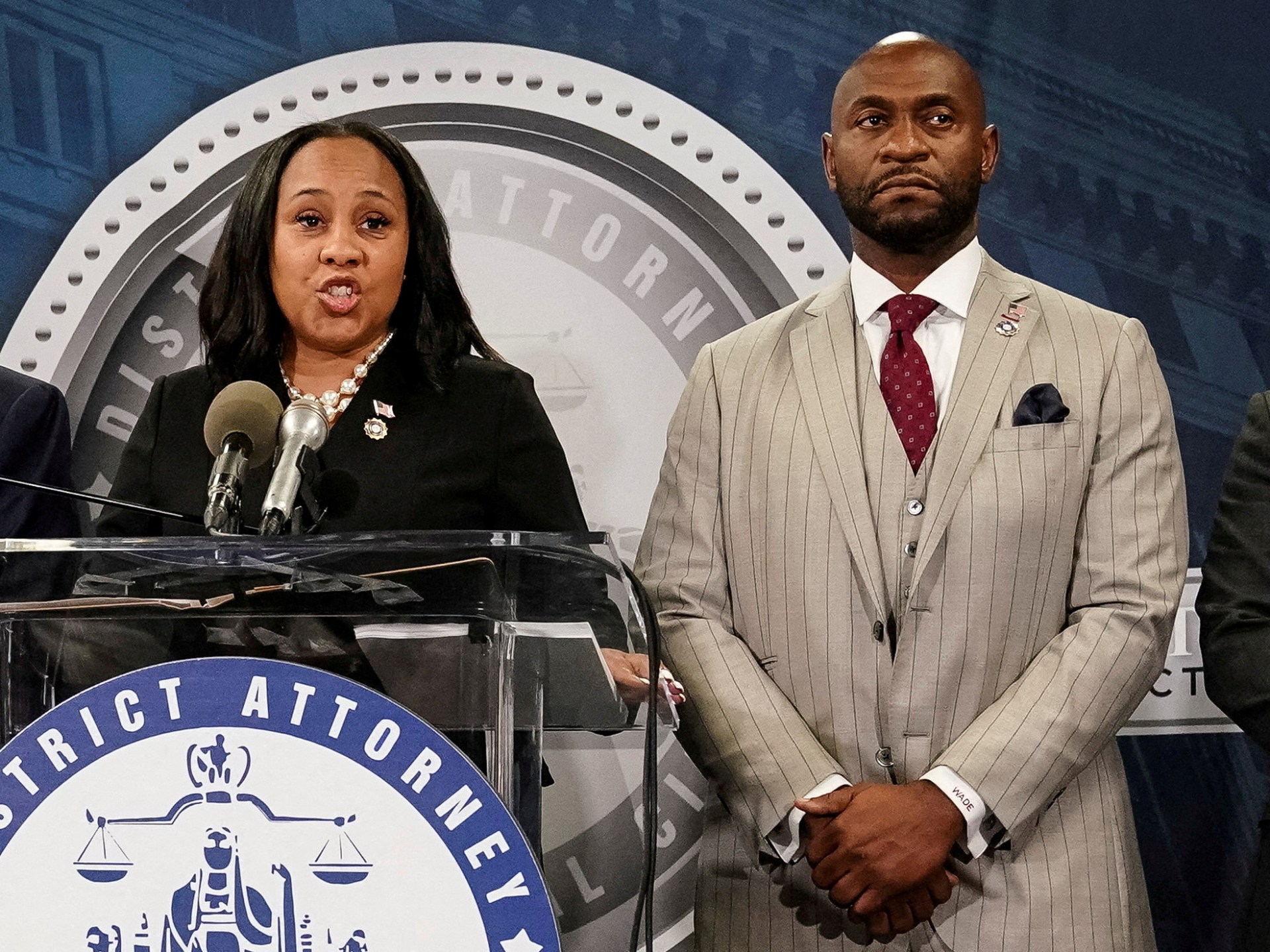Under Lula, Amazon deforestation is declining. Can he keep it up?
After Lula’s first six months on the job, there are some signs of early success. The government has pushed thousands of illegal gold miners off Indigenous land. In the Amazon, deforestation has dropped by a third.
But during that time, his administration has also been forced to reckon with the enormous challenges — political, logistical, financial — that must be overcome if the country is to succeed in ending illegal deforestation by its target date of 2030.
Lula’s environmental agenda has already suffered a series of blows in the conservative-led Congress. His opponents, many of whom see the Amazon forest as a resource to tap rather than a treasure to preserve, have undone early attempts to grant more authority to environmental and Indigenous officials and have pushed to restrict Indigenous claims to land. Deforestation, while falling in the Amazon, is soaring in the neighboring savanna region called the Cerrado. And Lula’s own cabinet has been consumed by infighting over how aggressive the government should be in protecting the environment.
Whether Lula succeeds in ending illegal deforestation will be decided in part by how well he balances competing political and economic interests in a country of enormous natural resources but also profound inequality and poverty.
He says it’s possible to have it all — both a growing Amazonian economy and a thriving environment.
“Taking care of the Amazon means taking care of the people who live there, so they can have development in a sustainable way, with economic models that use the forest intact,” the president told The Washington Post in an exclusive interview. “They can be the greatest partners in protecting it.”
He has created a ministry focused on Indigenous affairs and moved to vest it with authority to protect Indigenous lands. But he has also made clear that the Amazon is home to 30 million people, and they’re there to stay. The region cannot, he said, only be a “ecological sanctuary.”
Scientists, however, are skeptical that Lula can pull off his balancing act. For more than 30 years, since the 1988 constitution placed safeguarding the environment at the top of the government’s responsibilities, Brazil has tried, generally, to do just that. But in remote forests that remain largely unpoliced, it has rarely been a success. The steppingstones to economic progress — highways, settlements, dams — have almost always come at the expense of the environment.
“It depends greatly on what you want to say with the word ‘development,’” said Philip Fearnside, a researcher at Brazil’s National Institute of Amazon Research. “Many times, this development is used to transform forest into soy plantations and pasture.”
Lula’s efforts will be tested by a series of government-led infrastructure projects that could remake the Amazon basin. Some in his administration have signaled support for one large-scale railway project — the Ferrogrão, a name that blends the Portuguese words for railway and grain. It would boost the agricultural industry, supporters say, but would cause the deforestation of an estimated 800 square miles, shrink a national reserve and could invite more poaching and illegal logging in Indigenous territories.
Lula has said he wouldn’t oppose the controversial paving of BR-319, a 540-mile highway that bisects the Amazon from Manaus to Porto Velho. The project would speed transportation between the cities, but scientists warn it would open up the largely preserved core of the Amazon to destruction.
“It’s totally incoherent,” Fearnside said. “He can’t deliver all of these issues to the Ministry of Environment and then go out in front of these projects, going forward without letting go of anything. It’s inconsistent.”
But Lula’s apparently contradictory positions are, to a degree, a reflection of his evolution as a politician. In 2006, he unambiguously supported the construction of the Belo Monte megadam in the Amazonian state of Pará, referring then to Indigenous communities and the environment as “roadblocks.” The project led to expansive deforestation, and it decimated fish populations on which Indigenous communities depended for food.
It also led to a rift between Lula and Marina Silva, who as his environmental minister between 2003 and 2008 enacted policies largely credited with curbing Amazon deforestation. After she left his cabinet, they barely spoke for years.
Similar fissures are beginning to form in his current cabinet. Sonia Guajajara, head of the new Ministry of Indigenous Peoples, has criticized the Ferrogrão plan.
“The affected Native peoples were not consulted,” she told The Washington Post. “They have been ignored in their right to participate in decision-making that directly affects their lives.”
Silva, back as environment minister, conceded it has been harder than she anticipated to turn Brazil’s government toward environmental consciousness — even with Lula in power. “It is difficult for all countries that are pursuing this transition,” she said. But she expressed confidence Lula can satisfy both the appetite for economic expansion while preserving Brazil’s environment.
“Even with the difficulties we have with part of the Congress, and they are not few, Lula works to get around them,” she told The Post. “He has managed internal government tools to keep what is essential to the sustainability and Indigenous peoples’ agenda.”
She doesn’t expect more tension with Lula. The world has changed, she said, as has Lula’s understanding of the role environmental politics plays in it.
Lula himself appears highly attuned to this new reality. In his travels abroad, he has repeatedly emphasized his support for the Amazon. Since his victory, European countries and the United States have again offered funding to help Brazil end deforestation — aid that was suspended during Bolsonaro’s tenure.
“We’re going to do better now,” Lula told The Post. “With the experience and importance that this topic has gained in the world. This agenda is moving forward more.”
Check out our Latest News and Follow us at Facebook
Original Source






